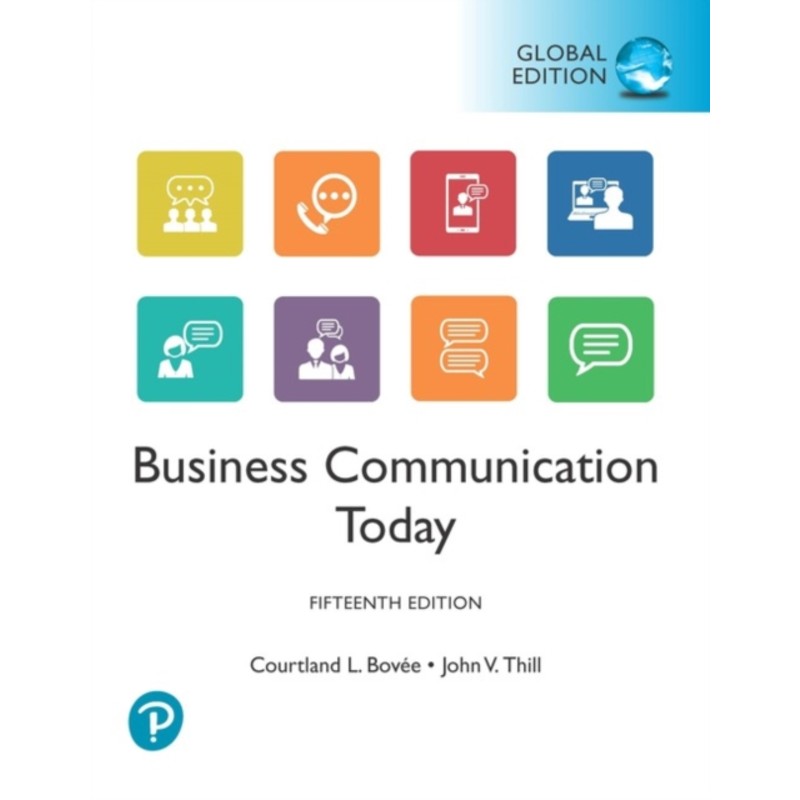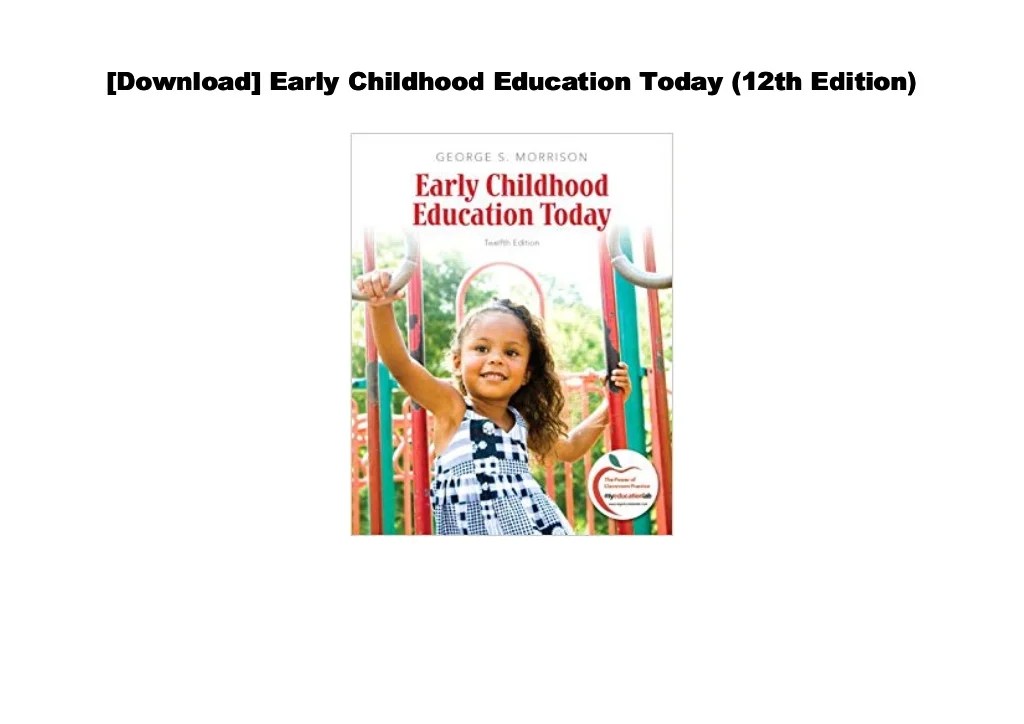Early childhood education today 15th edition pdf – Early Childhood Education Today: 15th Edition PDF is an indispensable resource for anyone involved in the field of early childhood education. This comprehensive guide provides a thorough overview of the history, principles, theories, and practices of early childhood education, offering readers a deep understanding of the field and its importance in shaping young children’s lives.
The 15th edition of Early Childhood Education Today has been meticulously updated and revised to reflect the latest research and trends in the field. It includes new chapters on social-emotional learning, diversity and inclusion, and the use of technology in early childhood education.
With its engaging writing style and accessible format, this book is an essential resource for early childhood educators, administrators, parents, and anyone interested in the field.
Introduction to Early Childhood Education

Early childhood education (ECE) is a field of study and practice that focuses on the development and education of children from birth to age 8. It has a long history, dating back to the 19th century, when the first kindergartens were established in Europe.
Today, ECE is recognized as an essential component of a child’s development and is offered in a variety of settings, including preschools, daycare centers, and Head Start programs.
There are many benefits to early childhood education. Research has shown that children who participate in ECE programs are more likely to succeed in school and have better social and emotional skills. They are also more likely to be healthy and have higher incomes as adults.
Key Principles and Theories in Early Childhood Education
ECE is guided by a number of key principles and theories. These principles include the belief that children are active learners who construct their own knowledge, that play is an essential part of learning, and that children learn best in a supportive and nurturing environment.
Some of the most influential theories in ECE include Piaget’s theory of cognitive development, Vygotsky’s sociocultural theory, and Erikson’s theory of psychosocial development. These theories provide a framework for understanding how children learn and develop, and they help to guide ECE practices.
The Role of the Teacher in Early Childhood Education
The teacher plays a critical role in facilitating children’s learning and development. ECE teachers are responsible for creating a safe and supportive learning environment, providing children with opportunities to learn and grow, and assessing children’s progress. They also work with parents and other professionals to ensure that children are receiving the best possible care and education.
Curriculum and Learning Environments in Early Childhood Education
The curriculum in ECE programs is designed to promote children’s cognitive, social, emotional, and physical development. There are a variety of different curriculum models used in ECE programs, but all of them share some common features. These features include a focus on play-based learning, hands-on activities, and individualized instruction.
The learning environment in ECE programs is also important for children’s development. The learning environment should be safe, stimulating, and supportive. It should provide children with opportunities to explore, learn, and grow.
Age-Appropriate Learning Activities and Experiences
The following are some examples of age-appropriate learning activities and experiences for children in ECE programs:
- Infants (0-12 months): Tummy time, peek-a-boo, singing songs
- Toddlers (1-3 years): Building with blocks, playing with dolls, exploring nature
- Preschoolers (3-5 years): Pretend play, arts and crafts, science experiments
- Kindergarteners (5-6 years): Reading, writing, math, social studies
Assessment and Evaluation in Early Childhood Education
Assessment and evaluation are essential components of ECE programs. Assessment helps teachers to track children’s progress and identify areas where they need additional support. Evaluation helps teachers to determine the effectiveness of their teaching practices.
There are a variety of different assessment and evaluation methods used in ECE programs. These methods include observation, portfolios, and standardized tests.
Observation
Observation is one of the most common assessment methods used in ECE programs. Teachers observe children during play, work, and other activities to assess their development and learning.
Portfolios
Portfolios are collections of children’s work that can be used to assess their progress over time. Portfolios can include a variety of materials, such as drawings, writing samples, and photographs.
Standardized Tests
Standardized tests are used to measure children’s skills and knowledge in specific areas, such as reading, writing, and math. Standardized tests are often used to compare children’s progress to national norms.
Collaboration and Partnerships in Early Childhood Education
Collaboration and partnerships are essential for the success of ECE programs. ECE teachers work with a variety of other professionals, including parents, administrators, and other teachers, to provide children with the best possible care and education.
Parents are children’s first teachers, and they play a vital role in their children’s education. ECE teachers work with parents to provide them with information about their children’s development and to support them in their role as parents.
Administrators provide leadership and support for ECE programs. They work with teachers to develop and implement curriculum, and they ensure that programs are meeting the needs of children and families.
Other teachers work with ECE teachers to provide children with a variety of learning experiences. For example, music teachers provide children with opportunities to learn about music, and physical education teachers provide children with opportunities to develop their physical skills.
Current Trends and Issues in Early Childhood Education: Early Childhood Education Today 15th Edition Pdf

The field of ECE is constantly evolving. Some of the current trends and issues in ECE include:
- The use of technology in ECE programs
- The focus on social-emotional learning
- The increasing diversity of children in ECE programs
The Use of Technology in ECE Programs
Technology is increasingly being used in ECE programs. Technology can be used to support children’s learning in a variety of ways, such as by providing them with access to educational games and videos, and by allowing them to communicate with other children and adults.
The Focus on Social-Emotional Learning, Early childhood education today 15th edition pdf
Social-emotional learning (SEL) is the ability to understand and manage one’s emotions, build relationships, and make responsible decisions. SEL is an important part of children’s development, and it can help them to succeed in school and in life.
The Increasing Diversity of Children in ECE Programs
The diversity of children in ECE programs is increasing. This is due to a number of factors, including immigration and changes in family structure. ECE programs need to be prepared to meet the needs of all children, regardless of their race, ethnicity, gender, or disability.
Expert Answers
What is early childhood education?
Early childhood education is the education of children from birth to age 8. It is a critical period in a child’s development, and it has a profound impact on their future success.
What are the benefits of early childhood education?
Early childhood education has many benefits for children, including improved cognitive skills, social skills, and emotional development. It also helps children to develop a love of learning and a positive attitude towards school.
What are the different types of early childhood education programs?
There are many different types of early childhood education programs, including preschools, kindergartens, and child care centers. Each type of program has its own unique approach to education, and it is important to choose a program that is right for your child.